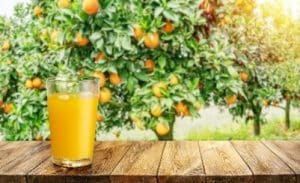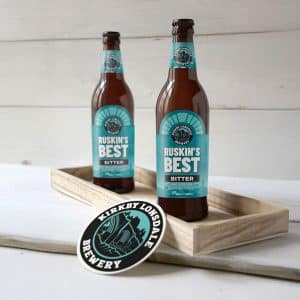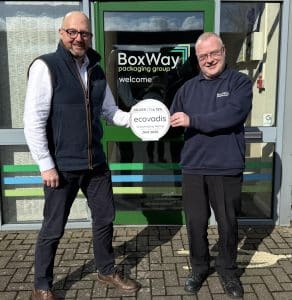Why are we doing it? It’s much more than an award celebration.
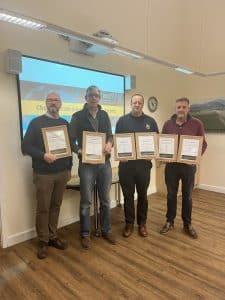
The Charles Faram International Hop Awards have been established to recognise the commitment of growers in the Charles Faram Hop Development Programme. The programme was set up to develop new varieties that concentrate on new flavours, disease resistance, sustainability and combatting environmental issues.
Besides winning the awards, the growers are given in-depth feedback from the judges. Judges are head brewers that have been asked to consider what type of characteristics that they are looking for as well as to judge on aroma and quality. The results are an excellent way to benchmark best practice and raise quality across all farms.
Samples range from the brand new, where just have one plant in existence up to already released commercial varieties.
New varieties
The competition compares new varieties from the UK, USA, Czech Republic, Poland and Slovenia for all important benchmarking and as an aid to selection for future commercial varieties.
Just 30 years ago there were only three varieties available from Charles Faram; Fuggle, Golding and Challenger. For small brewers it was very difficult to compete unless the beer had a USP or point of difference. To many, hops were that point of difference.
Charles Faram was the first company to import new world varieties such as Nelson Sauvin, Citra and Simcoe giving UK brewers access to more varieties than ever before.
The programme was started to establish a wider palette of varieties for UK growers to plant. This has now been extended to the USA, Czech Republic, Poland and Slovenia.
Sustainability and the planet
US acreage has doubled since 2011 from 12,054 to 25,6112 hectares through the development of new varieties like Cascade, Amarillo, Citra, Simcoe, and Mosaic which focussed on high aroma and citrus and fruity flavour. In the meantime the UK hectarage has been stable but not growing at the same rate.
By developing intense aroma new varieties here in the UK we hope the industry can recover from Covid and get back into significant growth. At the same time Faram’s hope to increase acreage for their grower partners abroad by helping with their offering for locally grown hops and reducing their carbon footprint.
Carbon footprint
The programme is working to develop varieties that require less fertilisers and pesticides; this is a priority. By growing hops locally, they immediately reduce the cost and the carbon footprint of shipping hops around the globe. This should save cost and reduce Co2.
They believe it is a challenge that they cannot ignore, and so are encouraging brewers around the world to buy more of their hops from their local farms.
Quality
With feedback from the Charles Faram International Hop Awards, we can provide a detailed analysis of areas of excellence along with areas of improvement for the growers. This year the awards have been particularly interesting in highlighting consistency and a great formula for hop growing success.
Winners
The winners were announced at SIBA BeerX in Liverpool on Thursday 17th March during a presentation to brewers about the Charles Faram Hop Development Programme.
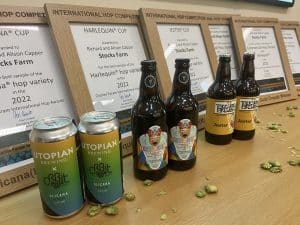
The Jester Cup, Olicana Cup and Harlequin Cup are all from the UK as this is where the programme started, so it’s further ahead in releases and development. These cups were all won by Richard Capper of Stocks Farm in Worcestershire. The farm has been in the Capper family since 1962.
The overall winner of our commercial varieties again went to Stocks Farm and Richard Capper with Harlequin. It is very apparent that out of the 70 varieties judged from different countries around the world, Richard has shown consistency in his quality and hopefully highlighted a formula that can be followed on other farms.
Richard Capper was thrilled to win the awards. His wife, Ali Capper said “2021 was a hard year for Richard and the whole family as he has battled both covid impacts on the hop business and a cancer diagnosis. He is well now and these awards have been a real boost and we all felt quite emotional as the announcements were being made. “
Interestingly, Harlequin also won the silver and bronze awards. Silver was won by Mark Andrews of Townend Farm in Herefordshire. Mark and his wife Lesley farm at Bosbury near Ledbury. The farm has been in the family for three generations. Mark has worked closely with Faram’s for over 20 years as did his father before him.
The Bronze went to Jim Barrett. Jim farms at Walsopthorne Farm near Ashperton, Ledbury in Herefordshire. He also works for several other farms in the area and is a well-respected hop grower.
It’s worth giving a mention to Jindra Krivanek over in the Czech Republic as he came a very close fourth place to these three Harlequin samples with Most.
The early-stage variety category was won by Mark Andrews again for Charles Faram experimental variety CF276. Anything un-named has a CF code and this also means that it is still in the trial plot stage. There are a number of plants being grown, but not on commercial levels. As soon as the hop hits commercial stage then it is given a proper name.
The winning new variety category was CF321. This category is for completely new varieties where only one plant exists in the Charles Faram nursery in Herefordshire. It’s a top-secret location – even some Faram’s team members don’t know where it is! It’s kind of hard to remember your way down all of the twists and turns of the Herefordshire countryside!
The feedback from this competition and judging means that we have already instructed CF321 to be propagated ready for the trial plot stage.
Playing your part
Sustainability, environmental initiatives, future flavour
Paul Corbett, Charles Faram Managing Director said, “We’re already doing the major work, which is a continuous cycle, but brewers have a massive part to play with the ingredients they buy, purchasing practices and their levels of development involvement. “
“Brewers now have a more environmentally friendly option with a pretty close flavour profile to those you would traditionally have found further afield. “
“We hope that we can encourage more brewers to support the programme and buy local hops.”
Save money – Save the environment – Save the planet!


